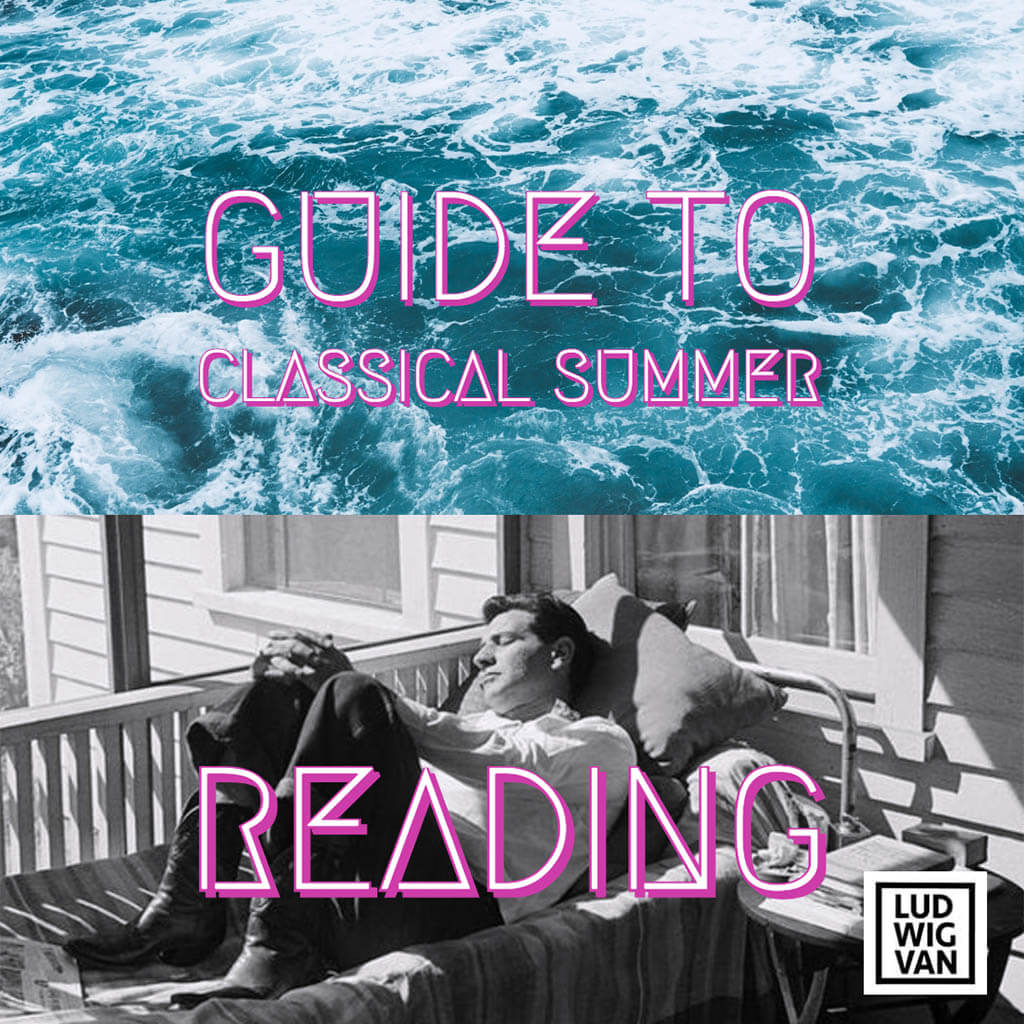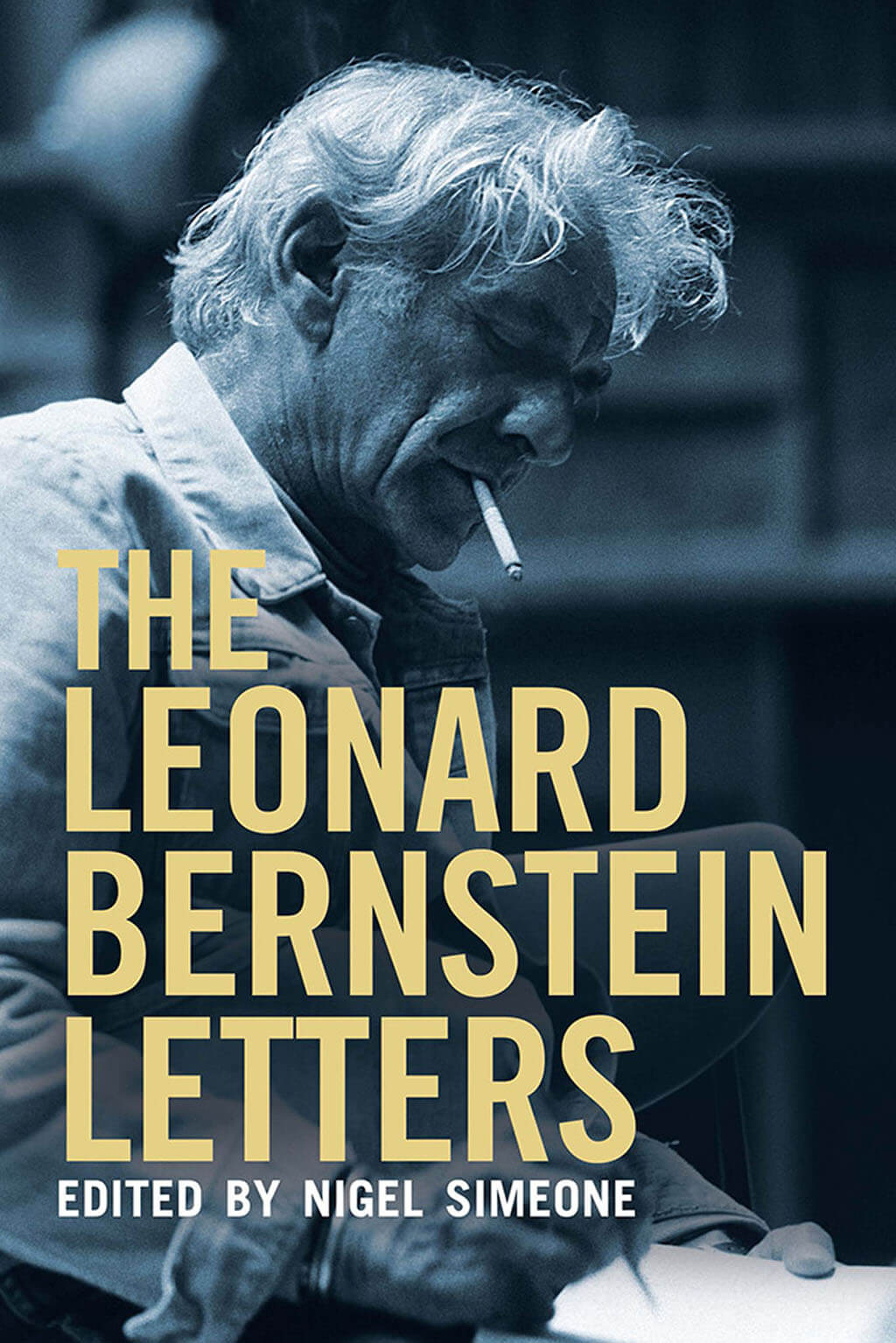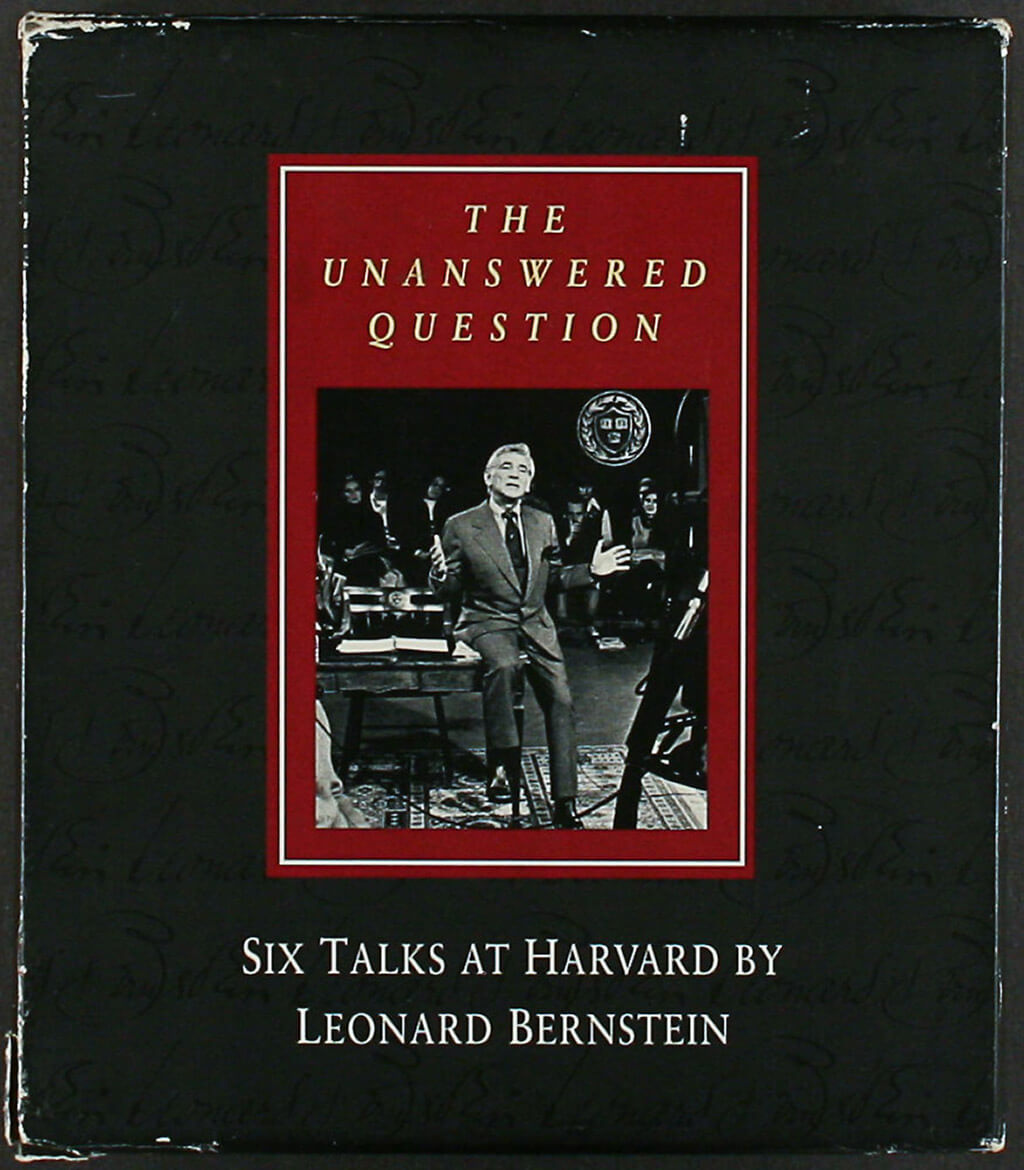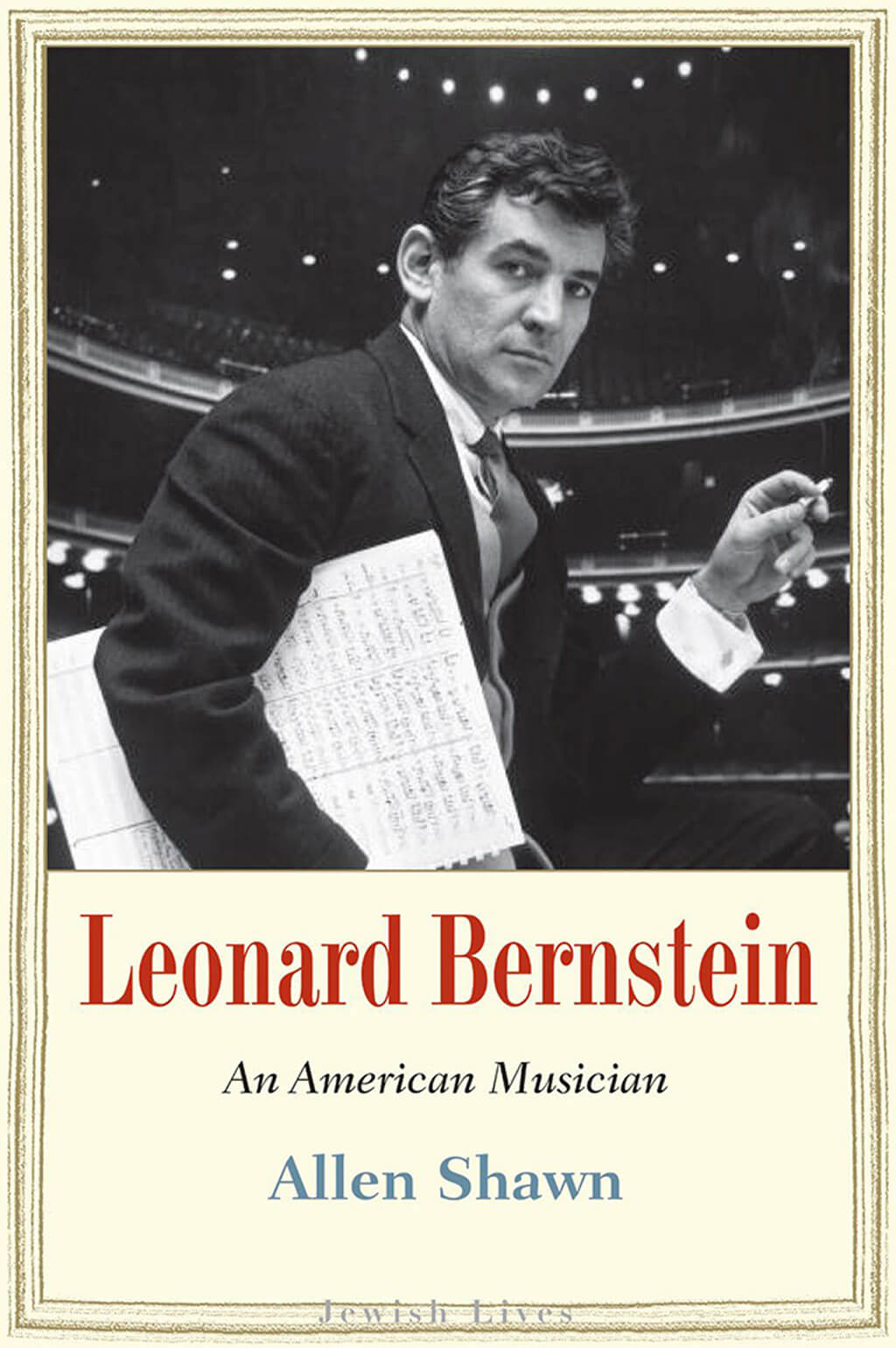
[For part one of this guide, see HERE]
The Leonard Bernstein Letters Edited by Nigel Simeone, Yale University Press 2013 Paperback $31.46; The Unanswered Question: Six Talks at Harvard by Leonard Bernstein Harvard University Press 1976 Paperback $44.28; Leonard Bernstein: An American Musician by Allen Shawn, Yale University Press 2014, Hardcover $28.92
Part One of Ludwig Van’s Summer Reading Guide concerned two books timed to coincide with the two-year global celebration of the birth of Leonard Bernstein. There are countless other books for you to enjoy that were published before Bernstein At 100. In fact, you draw reading material for several summers from the steady stream of Bernsteinabilia began appearing shortly after his death in 1990 and will continue to appear as private material in the archives of individuals who knew Bernstein become public. The Bernstein estate released a “fresh” batch of Bernstein correspondence in 2010, for example, and we can anticipate more from Bernstein’s younger associates, such as Stephen Sondheim, who are due for departure in the foreseeable future.
As Peter Oundijan’s fond reminiscence of Bernstein, delivered before conducting Three Dances from Fancy Free in June, and Bramwell Tovey’s equally warm memories of the Maestro, which were posted on the TSO website before he conducted Candide last April indicate, coming in contact with Lenny left a lasting impact. Concerning his musical influence, it’s nearly impossible to separate the effect of Bernstein’s powerful way of relating to the musicians with whom he interacted from the musicianship itself.

This is strikingly apparent in The Leonard Bernstein Letters, edited by Nigel Simeone. This discerning selection of 650 out of tens of thousands of letters makes Bernstein’s musical activities the primary criterion for inclusion. The letters from Bernstein to Aaron Copland, Stephen Sondheim, Adolph Green, David Diamond, Jerome Robbins, Serge Koussevitsky, Marc Blitzstein, Olivier Messiaen, James M Cain, and other major cultural figures, touch on detailed compositional considerations.
While Bernstein’s letters brim with energy, character and wit, they are only half the thrill of this collection. The letters to Bernstein from the correspondents just mentioned plus immortals such as Benjamin Britten, Francois Poulenc, Nadia Boulanger, Bette Davis, Samuel Barber, Andre Previn, Martha Gellhorn and Thornton Wilder, are even more rewarding. In their idiosyncratic, unique voices, they express the range and depth of response that Bernstein evoked in them. It’s a great privilege to witness intimate exchanges between people who meant so much to each other. Adolph Green’s letter to his friend Lenny on his 50th-birthday, describing their first meeting nearly 30 years before, is as great a testament to friendship as Michel de Montaigne’s tribute to Etienne de la Boethie*. He recalls that within minutes of meeting Lenny, he “felt a sudden, complete, exuberance. The fresh air of 1,00,000 windows opening simultaneously and a sense that my life had been building towards a turning point and that it had happened—now. […] We trouped the Onata Hills that night, for hours and hours […] and every moment was a new miracle. I knew as we walked and sang and talked, that you, the boy L.B. was nothing less than a genius. How happy your friendship makes me. It fills me with the simple and complicated joy of knowing there can be a meaning to life…”.

Evidence of the genius that Green mentions, is still abundantly available in many formats, including CDs, DVDs, Youtube Videos and more. The scripts of some of Bernstein’s television broadcasts make for extremely good reading. Though your idea of lakeside diversion might not be a rigorous inquiry into the application of Noam Chomsky’s linguistic theories to music, the text of Bernstein’s 1973 Norton lectures, The Unanswered Question, Six Talks at Harvard, is truly refreshing. Verbatim transcripts of the lectures, accompanied by diagrams he used as aids, plus fragments of scores of works that he referenced, they capture Bernstein’s relaxed, irreverent and self-ironizing voice. “So what? You ask. Why burden us with all this pedantic hair-splitting?”
Bernstein is the consummate public intellectual, suavely pursuing his admittedly speculative thesis that music has a universal structure that is innate to human understanding. Whether his conclusion is justified, or would withstand much scrutiny today is irrelevant, it’s the elegance of his thinking, the nuance of his reflection, and the patient explication of his theories that makes the lectures a thrilling intellectual experience. The best way to read the book is in tandem with the videos of the lectures, which not only give you the fiendishly telegenic Bernstein but the Boston Symphony Orchestra’s performances of the pieces he explicates. All 11 hours of the lectures are on YouTube, and the boxed set can also be purchased. In case you’re wondering, Bernstein poses an answer to the Unanswered Question (which is “whither music?”) in the very last moments of the lectures.
The letters and the lectures offer the pleasure of hearing Lenny speaking in his own voice, but these isolated vignettes lack an integrated overview. Allen Shawn’s Leonard Bernstein: An American Musician is a comprehensive and textured portrait of the man and his music. A composer and professor of composition and music history at Bennington College, Shawn has an ability to describe Bernstein’s music so that it almost seems audible, the way a well-written recipe can make you almost taste the flavour. He includes two themes that I did not find in other Bernstein bios. As part of the Yale University Press series, Jewish Lives, the book offers a serious discussion of the significant influence of Judaism on Bernstein’s character and compositional achievements. Before he immigrated to America, Bernstein’s father was on the path to rabbinic ordination, following in the footsteps of several generations before him, and was deeply versed in religious texts. The liturgical music at his synagogue had an influence on Bernstein that can be heard in the many compositions that take Hebrew or Jewish texts as their source, including Kaddish, the Dybbuk, and Chichester Psalms, which despite the English name has lyrics in Hebrew. In the spring of 1947, he put his belief in the healing power of music to the test by conducting an orchestra of survivors of Dachau. Ten thousand refugees attended the two performances.

Shawn also offers more insight into the experience of being conducted by Bernstein, with quotes from orchestra members who were under his baton. New York Philharmonic bassist Jon Deak characterized their over-performed version of the Tchaikovsky Fourth Symphony as “a weed-encrusted parking lot.” At rehearsal, Bernstein announced, “I just stayed up all night and rethought the whole fourth movement. From beginning to end we’re going to do everything differently”. After the rehearsal, Deak recalled, “the movement had suddenly been invested with such freshness — I couldn’t believe it.”
Four of the five books I’ve mentioned cover the same high and low points of Bernstein’s life so it would be maidenly repetitive to read all of them. Even so, it’s hard to get tired of Lenny.
*Montaigne wrote of his beloved comrade: *If you press me to say why I loved him, I can say no more than because he was he, and I was I.” These words may resonate for readers today because they were included in the speech given by father to son at the end of Call Me By Your Name.
https://www.ludwig-van.com/toronto/2018/06/16/guide-the-ludwig-van-guide-to-summer-reading-part-1/



